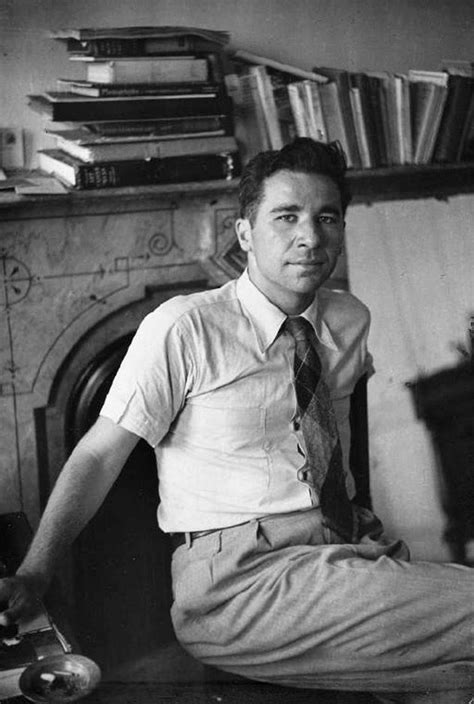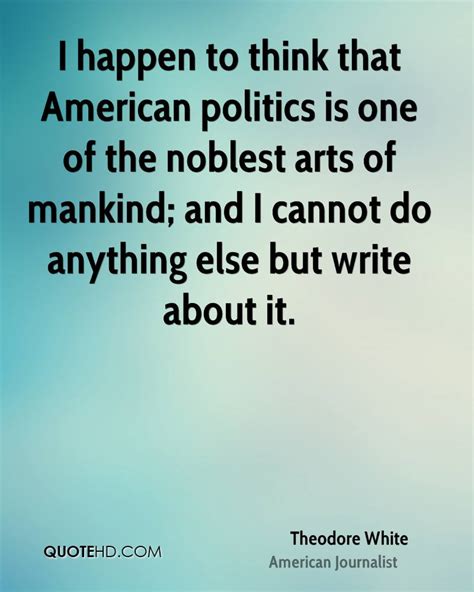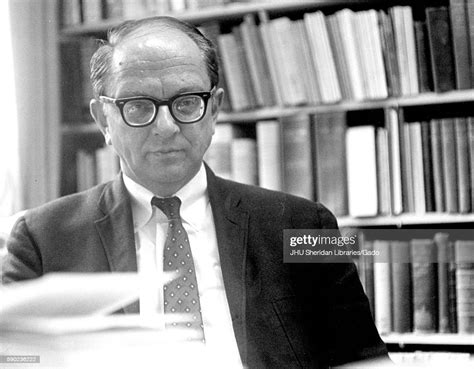A Quote by Alfred Kazin
What need had the businessman to scribble or philosophize when he dominated the imagination of his time and the frantic materialism that was his principle of existence had become the haunting central figure in contemporary life?
Related Quotes
It is not unreasonable to assume that the works of God, their existence and preceding non-existence, are the result of His wisdom, but we are unable to understand many of the ways of His Wisdom in His works. On this principle the whole Law of Moses is based; it begins with this principle: "And God saw all that He had made, and behold, it was very good" (Gen. i. 31); and it ends with this principle: "The Rock, perfect is His work" (Deut. xxxii. 4). Note it.
There were times when it appeared to Dorian Gray that the whole of history was merely the record of his own life, not as he had lived it in act and circumstand, but as his imagination had created it for him, as it had been in his brain and in his passions. He felt that he had known them all, those strange terrible figures that had passed across the stage of the world and made sin so marvellous, and evil so full of subtlety. It seemed to him that in some mysterious way their lives had been his own.
At the time when I was in college, Oscar Grant had just lost his life in Oakland, Calif. He was an unarmed young black male who had a record. And at the time when his death was making headlines, more people were talking about what he had done in his past than the fact that he unjustly lost his life.
When his phone rang, he had to dig through his pocket to find it, and his fingers brushed against a pair of tiny earbuds he and Kat had last used in Monte Carlo. Hale smiled a little, realizing he hadn’t worn the tux in ages. It was just one of many ways his life had change in the years since a girl named Katarina Bishop crawled into his window and into his life." — Double Crossed by Ally Carter
He had thrown himself away, he had lost interest in everything, and life, falling in with his feelings, had demanded nothing of him. He had lived as an outsider, an idler and onlooker, well liked in his young manhood, alone in his illness and advancing years. Seized with weariness, he sat down on the wall, and the river murmured darkly in his thoughts.
My father had a real short fuse. He had a tough life - had to support his mother and brother at a very young age when his dad's farm collapsed. You could see his suffering, his terrible suffering, living a life that was disappointing and looking for another one. My father was full of terrifying anger.
The ocean was one of the greatest things he had ever seen in his life—bigger and deeper than anything he had imagined. It changed its color and shape and expression according to time and place and weather. It aroused a deep sadness in his heart, and at the same time it brought his heart peace and comfort.
There must be a connection between the lust for power and impotentia coeundi. I liked Marx, I was sure that he and his Jenny had made love merrily. You can feel it in the easy pace of his prose and in his humor. On the other hand, I remember remarking one day in the corridors of the university that if you screwed Krupskaya all the time, you'd end up writing a lousy book like Materialism and Empiriocriticism.



































